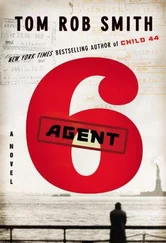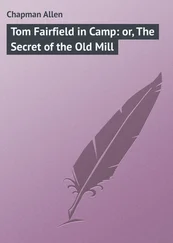Tom Smith - The Secret Speech
Здесь есть возможность читать онлайн «Tom Smith - The Secret Speech» весь текст электронной книги совершенно бесплатно (целиком полную версию без сокращений). В некоторых случаях можно слушать аудио, скачать через торрент в формате fb2 и присутствует краткое содержание. Жанр: Триллер, на английском языке. Описание произведения, (предисловие) а так же отзывы посетителей доступны на портале библиотеки ЛибКат.
- Название:The Secret Speech
- Автор:
- Жанр:
- Год:неизвестен
- ISBN:нет данных
- Рейтинг книги:5 / 5. Голосов: 1
-
Избранное:Добавить в избранное
- Отзывы:
-
Ваша оценка:
- 100
- 1
- 2
- 3
- 4
- 5
The Secret Speech: краткое содержание, описание и аннотация
Предлагаем к чтению аннотацию, описание, краткое содержание или предисловие (зависит от того, что написал сам автор книги «The Secret Speech»). Если вы не нашли необходимую информацию о книге — напишите в комментариях, мы постараемся отыскать её.
The Secret Speech — читать онлайн бесплатно полную книгу (весь текст) целиком
Ниже представлен текст книги, разбитый по страницам. Система сохранения места последней прочитанной страницы, позволяет с удобством читать онлайн бесплатно книгу «The Secret Speech», без необходимости каждый раз заново искать на чём Вы остановились. Поставьте закладку, и сможете в любой момент перейти на страницу, на которой закончили чтение.
Интервал:
Закладка:
The convicts exploded forward. Timur countered, launching himself off the floor, running, leaping into the door just as a mass of hands pressed against the other side, pushing in the opposite direction. There was no way he could hold them for long: his feet were sliding back. They were almost through. He reached for his gun.
The storm jerked the ship to the side, tipping the convicts off the door while throwing Timur’s weight against it. The door slammed shut. He spun the lock, clamping it tight. Had the storm tilted the ship the other way, Timur would have been thrown to the floor and the convicts would have spilled out over him like a stampeding herd, overwhelming him. Denied freedom, their fists pounded against the door, banging and cursing. But their voices were faint and their blows hopeless. The thick steel door was secure.
Timur’s relief was temporary, interrupted by the sound of machine-gun fire from the other side of the ship. The convicts must have passed through the second door.
Running, staggering, past abandoned crew quarters, Timur turned the corner, seeing two officers crouched, firing. Reaching their position, he drew his gun, aiming in the same direction. There were bodies on the floor between them and the second access door, prisoners shot, some alive, motioning for help. The critical door down to the subdeck levels — now the only remaining access point for the convicts — had been wedged open by a plank of wood, protruding from the middle. Even if Timur made a run for the door there was no way to shut it. The officers, panicking, were firing aimlessly, bullets sparking off steel, pinging with lethal randomness around the corridor. Timur gestured for the officers to lower their weapons.
Pools of water on the floor mimicked the wild movements of the sea, sweeping from one side to the other. The prisoners weren’t pushing forward, remaining safe behind the door. No doubt they were finding it difficult, among their cutthroat team, to conjure up the twenty or so willing to sacrifice their lives by surging forward to seize control of the corridor. At least that many would die before the guards were overpowered.
Timur took possession of one of the machine guns, aiming at the protruding wood stump. He fired, splintering the wood — walking forward at the same time. The stump was disintegrating under a barrage of steady gunfire. Maintaining the volley of bullets, the wood fragmented. The door could be shut, locked, the final access point closed. Timur sprang forward. Before he could reach the handle, three more stumps of wood were pushed through. There was no way to shut the door. Out of bullets, Timur pulled back.
Four additional guards had arrived, stationed at the end of the corridor, making seven in total — a pitiful force to hold off five hundred. Since their early losses, the prisoners hadn’t attempted a second advance. If a proportion weren’t prepared to sacrifice their lives, there was no way to progress. They were almost certainly devising another means of attack. One of the officers whispered:
— We stick our guns in the gap in the door! They don’t have weapons! They’ll drop the wood: we’ll shut the door.
Three officers nodded, running forward.
They hadn’t taken more than a couple of steps when the door was flung open. Panicked, the officers opened fire — to no avail. The foremost prisoners were using the injured crew as a human shield: burnt bodies carried like battering rams, skinless, charred faces screaming.
The officer nearest the advance tried to backtrack, his weapon firing uselessly into his colleague. The convict launched the body at him, knocking the officer to the floor. The guards redirected their bullets toward the prisoners’ feet. Several fell, but there were too many of them, moving too fast. The column of prisoners continued to advance. In minutes they would control the corridor, from which point they would spread to the rest of the ship. Timur would be lynched. Paralyzed, he couldn’t even fire his handgun. What use were six shots against five hundred? It was as pointless as shooting at the sea.
Struck by an idea, he turned, hurrying to the outer door, the door that opened onto the deck. He threw it wide open, exposing the wild sea, a dizzy mass of water. Each of the guards wore a safety belt. He clipped his hook to the wire that ran around the tower, a system designed to prevent men from being washed overboard.
Glancing back at the gunfight, there were only two officers remaining. Scores of prisoners were dead but a seemingly inexhaustible number were packed behind them. Timur called out to the sea, challenging it, rallying it:
— Come on!
The ship plunged down, pointing Timur into a deep trough. Then, slowly, the ship rose up. A mountain of water was rolling straight toward him, the crumbling white surf high above, blotting out the sky. It crashed into the side of the ship, flooding the corridor. Timur was swept back, immersed in the sea. Water filled the space entirely. The cold stunned him. He was helpless — unable to move, or think, washed down the corridor.
His safety hook saved him, pulled him to a standstill. The wave had broken over the ship. The ship countered the movement, tipping back the other way. The water drained away as quickly as it had swept in. Timur fell to the floor, gasping, surveying the results of the flood. The wall of prisoners had been smashed back, some to the floor, most down the steps. Before they were able to recover, he unclipped himself, ran forward, his clothes soaked and heavy, his boots squelching over the shot-up bodies of guards and prisoners, victims of the skirmish. He slammed the door shut, locking it. The subdeck levels were secure.
There was no time to waste. The door to the sea was wide open: another mountain of water might flood the interior, toppling the entire ship, Timur moved back toward the outer deck door. A hand grabbed him. One of the prisoners was alive, tripping him. The prisoner clambered on top of him, pointing a machine gun at his head. There was no chance he’d miss. The prisoner pulled the trigger. Out of ammunition, or ruined by the sea, the gun didn’t fire.
Granted a reprieve, Timur sparked back into life, smashing the prisoner’s nose with a punch, spinning him onto his front and forcing his face into a puddle of water. Once more the ship began to tilt down, this time to Timur’s disadvantage, the water draining away, saving the prisoner, who could now breathe. Dead bodies slid down the corridor, out onto the deck. Timur and the injured prisoner were slipping in the same direction, wrestling with each other, only meters from tumbling into the sea.
As they passed through the door Timur reached up and grabbed hold of the safety line, kicking the injured prisoner, sending him out onto the deck. A second wave was racing toward them. Timur pulled himself inside, shutting the door. As he stared through the small plate glass window, directly into the eyes of the prisoner, the wave hit. The vibrations rippled through his hands. When the water had cleared, the prisoner was gone.
SAME DAY
LEO WATCHED FROM THE BOTTOM of the stairs as the newly appointed leader of their uprising tugged the steel door, trying to pull it open. They were trapped, with no way of getting to the bridge. He’d lost many of his vory gang in the attempt to break free. Needless to say, he’d commanded from the back, avoiding the bullets. The surge of water had swept him downstairs. Leo glanced at the floor — he was ankle deep, a mass that was rolling from side to side, destabilizing the vessel. There was no way to pump it out, not in the midst of the current hostilities. There was no chance of cooperation. If any more water came in, the ship would capsize. They’d sink, in the darkness, unable to break out, locked in a steel prison as freezing seawater seeped in. Yet the ship’s precarious condition was of little interest to their newly self-appointed leader. A convict revolutionary, he was determined to succeed or die.
Читать дальшеИнтервал:
Закладка:
Похожие книги на «The Secret Speech»
Представляем Вашему вниманию похожие книги на «The Secret Speech» списком для выбора. Мы отобрали схожую по названию и смыслу литературу в надежде предоставить читателям больше вариантов отыскать новые, интересные, ещё непрочитанные произведения.
Обсуждение, отзывы о книге «The Secret Speech» и просто собственные мнения читателей. Оставьте ваши комментарии, напишите, что Вы думаете о произведении, его смысле или главных героях. Укажите что конкретно понравилось, а что нет, и почему Вы так считаете.












